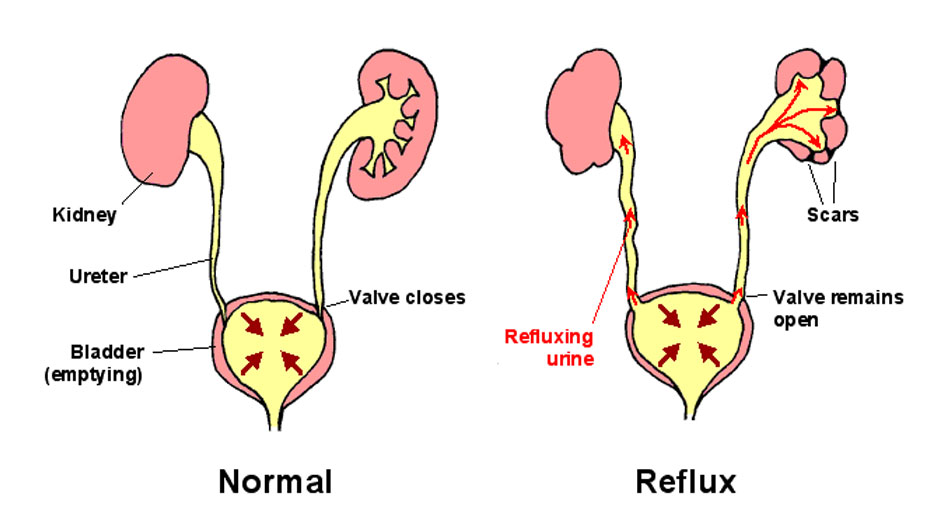
Reflux nephropathy
Reflux nephropathy is a kidney condition caused by vesicoureteral reflux (VUR), a disorder in which urine flows backward from the bladder into the ureters and sometimes into the kidneys. Over time, this backward flow can lead to kidney infections, scarring, and gradual loss of kidney function. It is more common in children but may also be diagnosed in adults who had undetected reflux in childhood.
Causes
Reflux nephropathy develops as a result of:
- Vesicoureteral reflux (VUR) – abnormal backward flow of urine
- Recurrent urinary tract infections (UTIs) in children
- Congenital abnormalities of the urinary tract
- Uncontrolled or untreated VUR during childhood
Symptoms
Many patients may not show symptoms until significant kidney damage has occurred. When present, common signs include:
- Recurrent urinary tract infections (especially in children)
- Fever, painful urination, or foul-smelling urine
- Bedwetting or frequent urination
- High blood pressure
- Protein in urine (proteinuria)
- Slow growth and development in children
- Kidney failure in advanced cases
Treatment & Management
Treatment depends on the age, severity, and extent of kidney damage. In children, mild reflux may improve on its own as the urinary tract matures. Management usually includes antibiotics to prevent infections, regular monitoring of kidney function, and treatment of high blood pressure. In more severe cases, surgery may be required to correct the reflux. For patients with advanced kidney damage, dialysis or kidney transplantation may become necessary.



